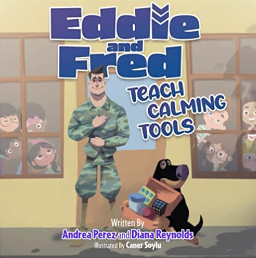One of the biggest struggles as a parent is trying to help their children navigate through big feelings. No matter how trained or equipped we might feel, every child is different and processes emotions differently. Helping children process their big feelings is an important aspect of their emotional development. There are many approaches and techniques people can try and follow. Here are some strategies to assist children in understanding and managing their emotions.
Creating a Safe and Supportive Environment
Creating a safe and supportive environment may be the most important step in this process. Ensure that your child feels comfortable and safe expressing their feelings without judgment. Don’t immediately start yelling at them or make them feel like they cannot come to you for help. Let them know that all emotions are valid and normal. It might feel frustrating to watch your child having a meltdown and not understand why they are feeling that way. That’s why it’s so important not to dismiss the way they are feeling and assure them they are okay.
Encouraging Open Communication and Reflective Listening
Encourage your child to have open communication with you and talk about their feelings. Ask open-ended questions to help them explore and express their emotions. Another great tool you can use is reflective listening. This can be helpful and is where you paraphrase and repeat what your child says to show that you understand and validate their feelings. For example, “What I am hearing is that you are upset because your sister stole your favorite toy from you.”
Expanding Emotional Vocabulary
We are constantly teaching our children new words, and we also need to expand on their emotional vocabulary. Help your child build a diverse emotional vocabulary by introducing them to different emotions and their corresponding words. This will allow them to identify and articulate their feelings more effectively.
Validating Your Child’s Emotions
Validation is huge for a child dealing with big emotions. It’s important to validate your child’s emotions by acknowledging and accepting how they feel. Let them know that it’s okay to experience a wide range of emotions and that you are there to support them. Try to stay calm and let them know you are available for them to talk to. Let them know that hitting someone or damaging things out of anger is not okay. There are better strategies and tools they can use to work through those big feelings.
Building an Emotional Toolbox

Building an emotional toolbox full of coping strategies is a great way to give your child the tools to overcome their big feelings. Encourage deep breathing exercises, mindfulness techniques, or engaging in activities they enjoy, such as drawing, writing, or physical exercise. Reading Eddie and Fred Teach Calming Tools provide examples of how to build emotional toolboxes and overcome unwanted feelings.
Modeling Healthy Ways of Managing Emotions
This next step might be difficult for many but it’s also a very important one. Children learn by observing the behavior of adults around them. Be mindful and aware of your own emotional responses and model healthy ways of managing emotions. Show them how to take deep breaths, talk about your feelings, or take a break when you need it. For example, “I’m feeling very frustrated right now. I need a break and we can come back to this conversation in 10 minutes.”
Providing a Variety of Outlets
Providing a variety of outlets can give your children different ways to express their feelings. This can include drawing, painting, journaling, role-playing, or engaging in physical activities. It is not “one size fits all.” Find what works best for your child and encourage them to explore those outlets.
Reassuring Your Child and Reminding Them of Past Successes
Reassure your child that their big emotions are temporary and that they have the strength to navigate through difficult feelings. Let them know that it’s natural to experience ups and downs, and remind them of past situations where they successfully managed their emotions.
Seeking Professional Guidance if Needed
Ultimately, if your child consistently struggles with processing their emotions or their emotions significantly impact their daily routine, consider seeking guidance from a mental health professional who specializes in working with children.
Being Patient, Empathetic, and Supportive throughout the Process
Remember, every child is unique, and it may take time for them to develop the skills and build their toolboxes to process their big feelings effectively. Be patient, empathetic, and supportive throughout the process.
Healthy Children Emotions and Feelings Conclusion
Helping children navigate big feelings is a challenging but crucial aspect of parenting. By implementing these strategies, you can create a safe and supportive environment for your child to express their emotions. Encouraging open communication, expanding their emotional vocabulary, and validating their feelings will help them develop a better understanding of their emotions.
Building an emotional toolbox equipped with coping strategies empowers your child to manage their big feelings effectively. Remember to model healthy ways of managing emotions, providing a variety of outlets for expression, and reassuring your child of their inner strength.
However, it’s important to recognize that each child is unique, and the journey of emotional development may vary. If you find that your child consistently struggles or their emotions significantly impact their daily life, seeking professional guidance from a mental health specialist who specializes in working with children can provide valuable support and guidance.
Above all, be patient, empathetic, and supportive throughout the learning process.
Your consistent presence and understanding will help your child navigate their big feelings and foster their emotional well-being. Together, you can equip them with the necessary tools and skills to thrive emotionally.



